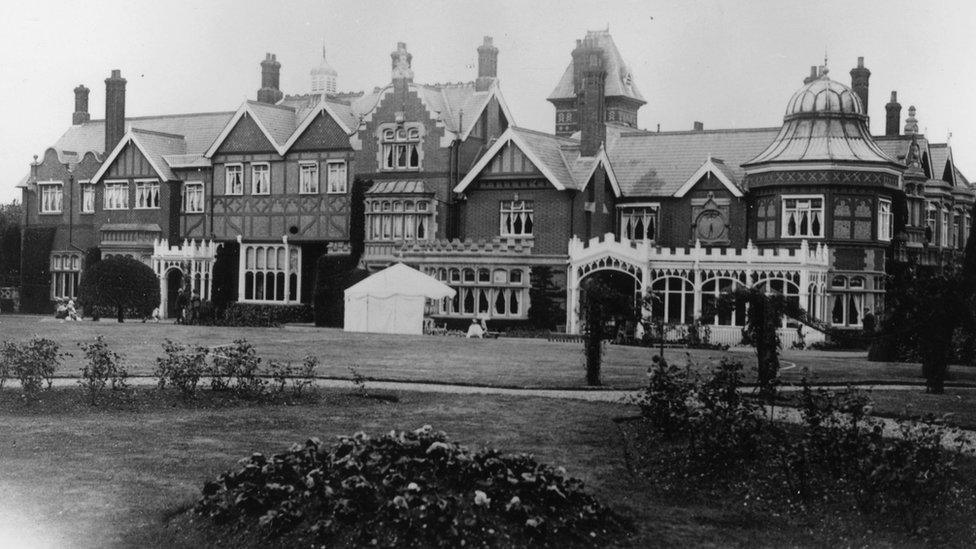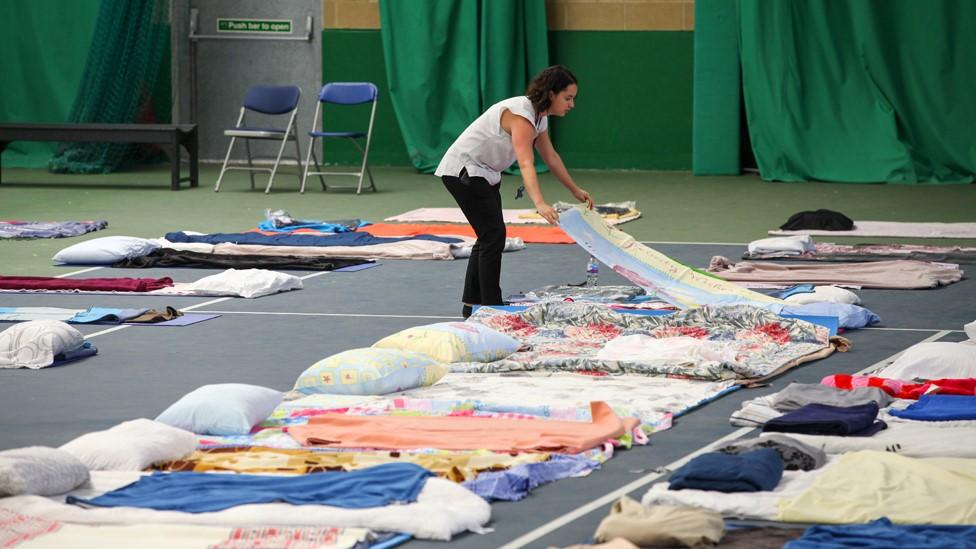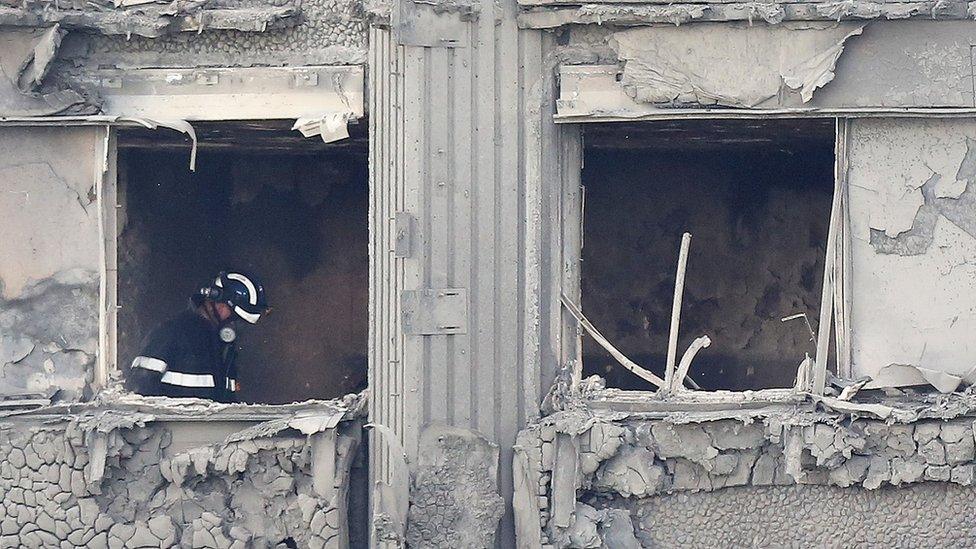Reality Check: Can the government requisition homes?
- Published

The claim: Labour leader Jeremy Corbyn says the government should requisition housing if necessary for those made homeless by the Grenfell Tower fire.
Reality Check verdict: Doing so would not be allowed under current rules, and legislation to allow property to be seized in peacetime would be controversial.
Labour leader Jeremy Corbyn said: "It cannot be acceptable that in London you have luxury buildings and luxury flats kept as land banking for the future while the homeless and the poor look for somewhere to live."
Mr Corbyn's spokesman was asked about the legality of this and said: "We would find a way to do this if necessary - we are looking into the ways in which it could be done depending on circumstances."
The obvious example of governments forcing owners to allow their properties to be used was during the two World Wars. Many stately homes were requisitioned as part of the war effort. Bletchley Park, where crucial code-breaking was carried out, was bought privately before the war, but requisition was later used to extend the site.

Land around Bletchley Park was requisitioned as part of the war effort
The government had to pass legislation in order to do that - the Defence of the Realm Act in 1914 and the Emergency Powers Act in 1939 - but this does not appear to have happened in peacetime to meet emergency housing needs.
"Any property requisitions may therefore require emergency legislation in Parliament to instigate and would probably prove controversial," said Mark Woloshak, a lawyer from Slater and Gordon.
Local authorities do have the power to force someone to sell their land, using something called a compulsory purchase order (CPO).
These are used when there is a strong public interest justification, in order to "deliver social, environmental and economic change", according to government guidance, external.
For example, if land or buildings are empty, they might be compulsorily purchased in order to redevelop housing estates or to build a public road. The owner will be compensated.
However, doing this with empty luxury flats would be extremely expensive.
Also, research from the London School of Economics, external recently found "almost no evidence of units being left entirely empty - certainly less than 1%", but that "for those units bought as second homes, occupancy could be as little as a few weeks a year".
And there are questions as to whether the exercise of this power in the context Mr Corbyn refers to would be lawful.
"It wouldn't stand in the courts… it would be a breach of the purpose that legislation is for," said lawyer Chad Sutton from Planning Clarity Legal.
Acquiring land through a compulsory purchase order is also not a quick process, often taking up to two years before public bodies can get access to the land, so this would not be a quick fix to rehouse displaced people in the short term.
CPOs are intended as a last resort after the authorities have attempted to negotiate with the landowners.
There are currently no powers available to force an owner to rent out their property if it is vacant.
Local authorities have access to use Empty Dwelling Management Orders, but those are designed to allow local authorities to step in when empty properties have become targets for vandalism or a blight on the neighbourhood.
There are restrictions on their use that would prevent them applying to luxury flats in good condition, even if they were empty.
So, to provide emergency housing in the current circumstance, the government would need legislation either to allow requisitions or the use of CPOs.

A helper sets out temporary bedding for those made homeless by the Grenfell Tower blaze



- Published16 June 2017
